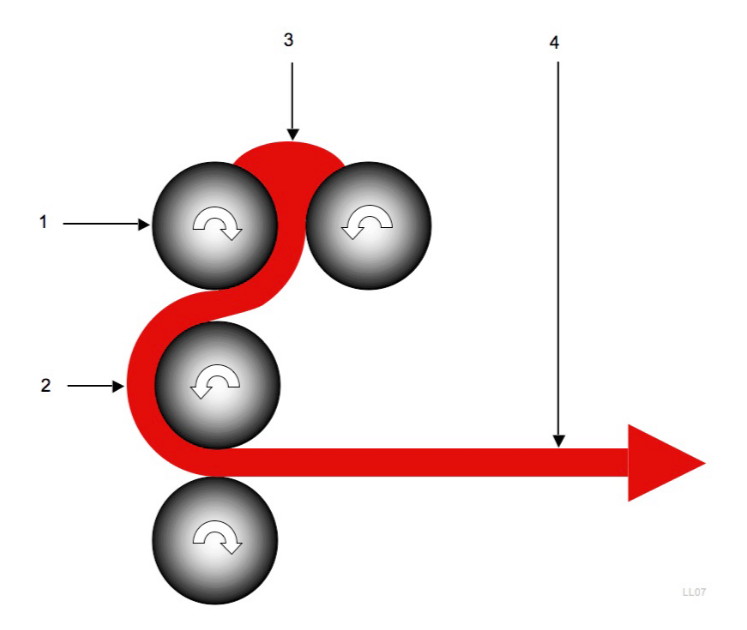What do you feel is the most important functional area in your business or in any for-profit firm?
By functional area I mean think of your organizational chart and list which key functions are on it and report up through to the CEO. Marketing, sales, and human resources are just three of the usual many functional areas. Of course, all of the functional areas are important all of the time. And in some time periods, one or two of the functional areas become more important to solve a problem, crisis or seize an opportunity.

But the topic of this article is which functional area is the most important all of the time? For me, it is the sales function. And it has taken me thirty-five years in the field with businesses to come to this opinion. What about marketing, human resources, R&D, manufacturing, supply chain, after-sales customer service, quality, finance and accounting you ask? And there are others we could list as well like internal audit, which can be very important in publicly traded firms to be in compliance with accounting regulations and Sarbanes-Oxley. Whichever functional areas you currently have in your business have been added over the years because they were needed for proper division of labor and resourcing to get work done. Thus they are all needed and important.
But without a great sales function, sales process and a good to great sales force your business will likely not last long. This is especially true in Business-to-Business (B2B) settings but is also key in most Business-to-Consumer (B2C) businesses like selling residential homes. We will focus for the remainder of this article on the B2B spaces where expert consultative selling is key, but my observations also apply to B2C situations.

Best-practice B2B sales force work is very demanding. Frequent travel can cause the sales force to feel disenfranchised from the business. But the real hard work comes from calculating precisely the value your products and services are supplying to your customers. Please see my article in this series What Is Value for further background. In today’s B2B selling opportunities if you cannot calculate the value you will deliver, and demonstrate it is superior to rivals’ value, you will likely not get that business.
You might be thinking why I did not choose marketing as the most important function all of the time. I love marketing. But in a down budget cycle, a great sales force, supported by the corporate office, can do “boots on the ground” marketing while they sell. That sales force also can develop the deep relationships with customers that can win the day. Research has shown that if your firm and rivals are at parity with the total value they offer and will deliver, the decision to buy by a customer boils down many times to simply who do they like the best. Being out at the customers’ shops, not calling from the office helps immensely being liked. And while calculating and demonstrating the real value you will bring to the customer, the sales person also does the little things that customers appreciate. Like getting a spare part shipped overnight, maybe free of charge. Like performing technical diagnostics on the spot. And even remembering your customers’ children’s birthdays can enhance the relationship building process.
What about manufacturing, whether your firm does its own in its plants or outsources it? I love being in plants and factories. But manufacturing knowledge has been diffused widely and while critical to staying in the competitive ballgame, has become common denominator. I realize manufacturing is typically the functional area where the largest increases in people productivity can come from. But again knowledge about increasing productivity and the machines available for purchase to make your products at any given point in time have become common denominator.
What about human resources? I love people and certainly the sales force is part of your people. But good people will always come and go from your firm. Human resources can help build a strong culture, but the ebb and flow of your people out of your firm is a real headache. Even if some of your great salespeople leave, what is permanent is the best practice sales process you have built in a proprietary way. You can hire new sales recruits and train them. An added expense, but this is doable.

What about after-sales customer service you might ask? This function is important all of the time but is critical in situations of product recalls or to help with products and services that are complex to install and use. Without this function, customers can get very frustrated. But again best practice call-center knowledge has become widely diffused, thus it again has become common denominator.
I could go on comparing the sales function to the other very important functions in your business. But no repeat revenue and no new revenue can spell the end of your company. In my experience, it is the sales force, backed with a great sales process that brings home the bacon every day. What is your opinion of the most important function in any for-profit business?
This article is part of a series on what causes a firm’s value to increase
Dr. William Bigler is the founder and CEO of Bill Bigler Associates, He is the former MBA Program Director at Louisiana State University at Shreveport and was the President of the Board of Strategic Planning in 2012 and served on the Board of Directors for Nitro Security Inc. from 2003-2005. He has worked in the strategy departments of PricewaterhouseCoopers, the Hay Group, Ernst & Young and the Thomas Group. He can be reached at bill@billbigler.com or www.billbigler.com.
